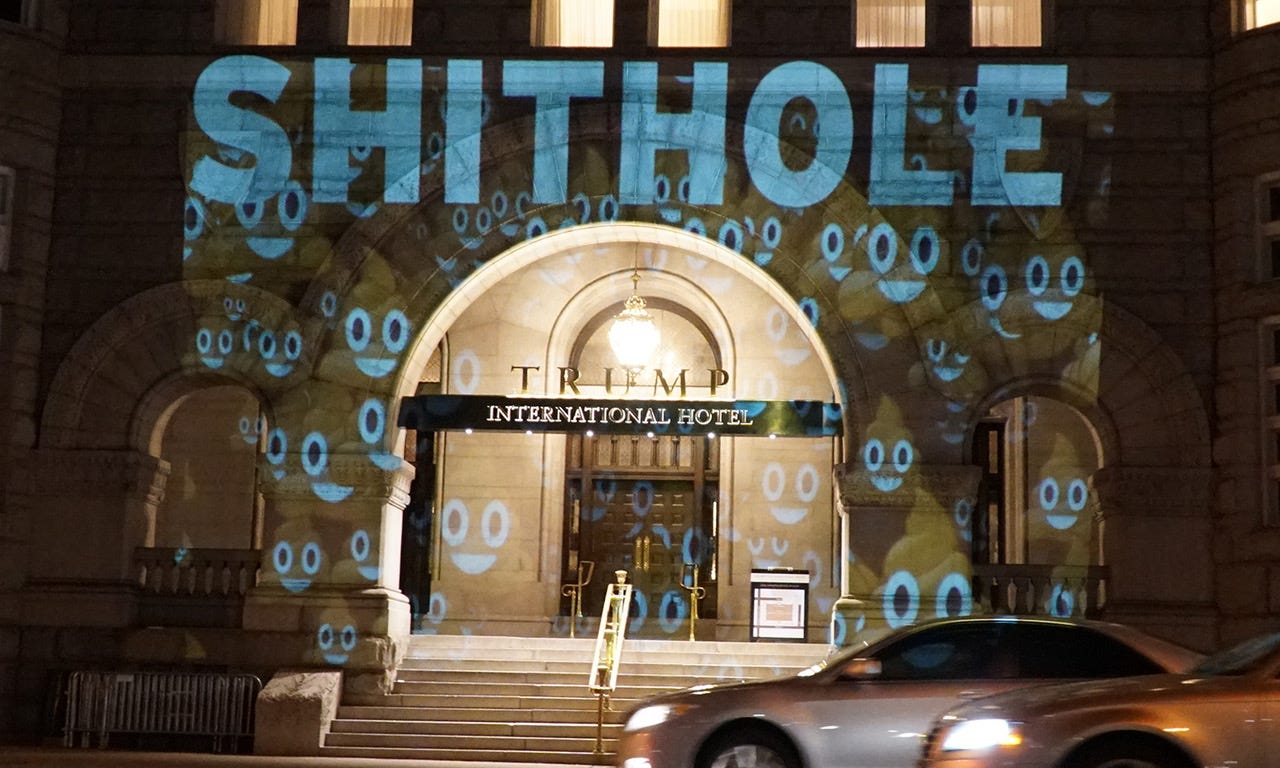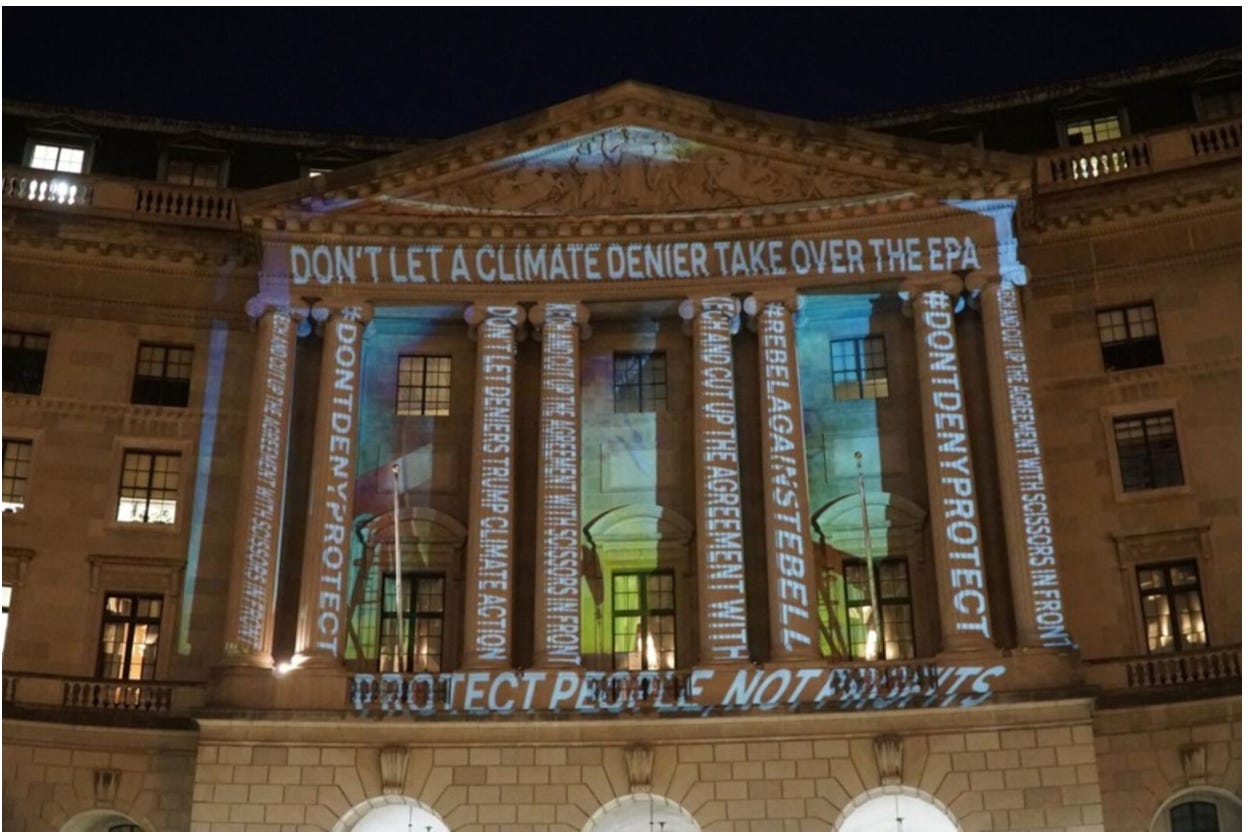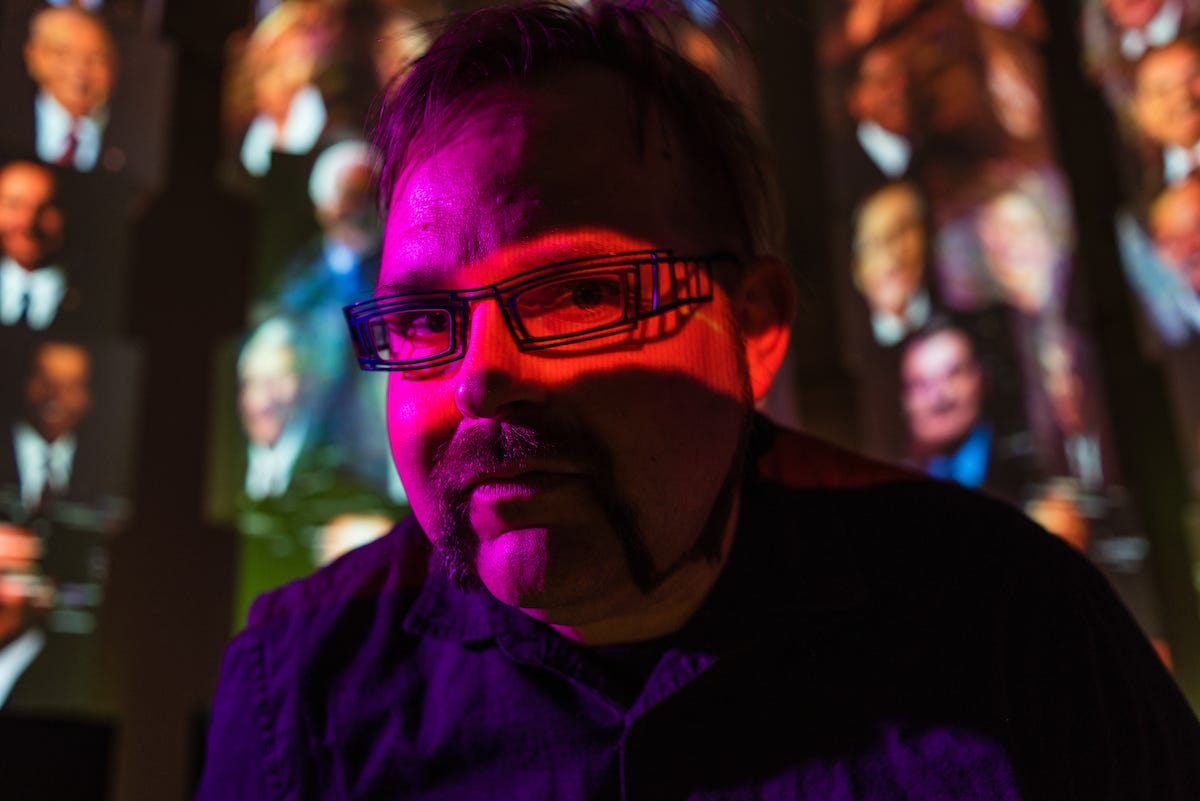Lucid Interview: Robin Bell
I'm very pleased to present my interview with Robin Bell, founder of Bell Visuals. This interview, from March 3, 2021, has been edited for clarity and flow.
Robin Bell is an award-winning editor, video journalist, and multimedia artist based in Washington DC. Building upon his training as a classical printmaker, Robin developed a unique style of live video collage which he has performed at The Kennedy Center, The Phillips Collection, Central Park Summer Stage, and The Hollywood Bowl. Robin was the lead video editor for PBS television show Foreign Exchange with Fareed Zakaria. He has also taught video classes at the Corcoran College of Art and Design.
Robin’s commitment to social change through the dissemination of information via video, sound and image marks his career. In 2005, Robin co-produced Operation Ceasefire, a seminal anti-war concert on the National Mall. In 2014 came his feature length documentary, Positive Force: More Than a Witness: 30 Years of Punk Politics In Action. His incisive 2017 projection on the Trump International Hotel in Washington DC, Emoluments Welcome, garnered attention from the BBC, CNN, and the New York Times, among others. Recent projects include collaborations with the Covid Memorial and the Movement for Black Lives.
Ruth Ben-Ghiat (RBG): We talked in March 2018 about how your work aimed at countering the normalization of the Donald Trump administration's corruption and hate ideologies, in part by urging people not to "shut down." As you put it, your projections on the façade of the Trump International Hotel and elsewhere were about "letting people know we are listening and we care." Can you talk about what you learned from working in the public sphere during the Trump years and how you see our current situation?
Robin Bell (RB): We're definitely in an interesting space right now. I feel we are in the eye of the storm. There is a sense of calmness [with the new Joe Biden administration] but just around the corner it could all come back. Honestly, part of me is surprised I am standing here in Washington DC able to talk right now. We really came so close to the brink. So I think the mission of what we're doing hasn't changed, although it's been exasperated by the pandemic, I personally had Covid-19 and there is a certain level of sheer exhaustion from that.
The Steve Bannon-Trump method was to just attack, attack, attack, so that people would just shut off. So thousands of artists, intellectuals, and others, we all tried our best to just not disconnect. It was all about everything mattering, at the end of the day, and finding connection points. When we did the projections on government buildings, you could really feel tension between government employees there for years who cared about the system, and [new appointees] coming in and robbing.
Law enforcement was also a mixed thing. There were a fair amount of law enforcement that liked Trump, but also many who were liberal, so we had some protection. In March 2019 we projected "Discrimination is Wrong. #Equality Act" onto the Rayburn House Office Building. The Capitol Police arrested one of our crew members [Robert Diesu] and confiscated our stuff. Yet the DC District Attorney Jessie K. Liu, and DC Mayor Muriel Bowser were on our side. [Here is a piece about the legality of such projections].
I also help others to get their messages out. We are working now with an immigration-rights group. We know how Trump's racism translated into his administration's immigration policies, like detentions and deportations [in a January 2018 comment about immigration, Trump called Haiti and other majority-Black nations “shithole” countries.] Unfortunately, the Biden administration is doing some of the same things - and Trump had also inherited those things, in part, from the Obama years. The overall sense is that we should be happy we have Biden in office, but for immigrants of color facing deportation, right now Biden and Trump are the same thing.

RBG: You've been early calling out so many things, and that can carry a price: people might not be ready to hear the message. But your work is also about memory, like the piece you did with the Martin Luther King Library, which juxtaposed images from the 1963 March on Washington for Jobs and Freedom with 2020 Black Lives Matter protests. So it's not stagnant memory, but memory that grounds and nourishes what's going on now.
And now we're in the middle of this psychological warfare campaign by the GOP to get us to forget the memory of January 6th [the assault on the Capitol to keep Trump in office illegally] or blame the attack on the left. A lot of what you have been warning about is kind of happening in condensed form right now, even though Trump is out - or perhaps because he is out.
RB: Since the Black Lives Matter protests of last summer through early January, we were on high alert, knowing something would happen. We knew there would not be a clean transition of power. People would say, "you are overreacting. He lost." But history tells you that you can get trapped by a level of optimism and comfort. We know history so we've been trying to raise the alarm for last four years and say hey, this is what could happen. And although people like the work we do, at the same time they'd say, "okay, you are going too far with this. Trump will respect democracy and leave peacefully." And I would say, "nothing I've seen would lead me to believe that."
There are also physical and psychological effects. We've been under political and biological existential threats, with Trump and coronavirus. Like many who had Covid-19, I had these vivid dreams. I know that people who live under authoritarian regimes, they can also have these collective dreams.
RBG: Yes! There's a book by Charlotte Beradt, The Third Reich of Dreams. It recounts dreams she collected from people in Nazi Germany. Did any of your dreams translate into your work?
RB: Yes definitely. Although I tried not to think about work at night, or you don't get any real rest, dreams are of course your brain trying to process the information and experiences of the workday. Even before getting Covid, though, I would have these intense dreams, especially in the six months after the 2016 election. The dreams would be a visual reminder of what happened but I also saw things [that might happen]. I told myself, okay this is happening so fast, this is a blitzkrieg, and there is no way we have the tools to process it all. What the GOP and Trump were doing went against our norms and the way we usually talk about things, so we did not have a good mechanism to fight back.
RBG: Let's talk about your work on climate. Plunder of natural resources is always a feature of strongman rule and its negations of transparency and accountability. Can you discuss your work in this area and your projections on the Environmental Protection Agency (EPA) building?

RB: We've made so many mistakes over the last thirty years in how the discourse on climate is framed, but one great thing now is how the connections between climate change and oppression are becoming clearer for people. Looking at the exploitation of indigenous cultures and how this is connected to climate change, and looking at how pollution for profit has often been concentrated in cities with large populations of color. And Naomi Klein's book On Fire talks about connections between white supremacy and the environment.
There is also some movement to expose the deep racism within past environmentalism. I applaud the Sierra Club for acknowledging that John Muir, who did great things for the environment, was also a racist and terrible in terms of indigenous rights. So now there is a way of trying to talk about those complexities. We will spend the rest of our lives working and dealing with climate.
RBG: I want to ask you about the intended audience for your work. For me your projections are like a clarion call, and I think that it gave many people hope to see someone standing up so clearly for democratic principles.
RB: There is an interaction between artist and viewer and there is always a sense of responsibility. How does the work fit within the moment, and fit with the viewer? It was essential that under Trump people did not quit working at the EPA and other places of power, that they did not give up and allow cronyism to take over. Each individual could become like a stopgap. We saw this to the very end of the Trump administration. Time and again career officials, civil servants, put their lives and careers in jeopardy to stand up and fight back. So some of these projections were for those people in those buildings like the EPA.
RBG: That's very touching.
RB: It's been helpful for me to think about people who view my work and enjoy it as my collaborators. Sometimes people say my work is propaganda, but I think of it as showing people something, posing questions, and letting them come to their own conclusions. Although sometimes you do have to say exactly what you think and feel, you have to be firm at times, there is no middle ground. Most of the media did not have the courage to call out the really bad behavior early on, so we and others had to do it.
RBG: It can be exhausting to be in fight mode. We also need reflection mode to create. You need the energy of conflict sometimes, but there has to be a balance. So what do you do to keep serene and recharge?
RB: Well, it's shifted radically because of Covid. I get a lot of energy and ideas from people, neighbors, conversations. So that's been hard. But pre-Covid, I would love to sit with a group of people and eat Maryland blue crabs for a few hours. There is a seafood restaurant near the White House, the Old Ebbitt Grill, and they had a Happy Hour from 3-6pm and from 11pm-1am. So if we did a projection gig, I tried to finish the editing and everything by 11 or midnight so we could get over there for last call for Seafood Happy Hour. In general, I'd say I try and keep perspective, try and affect others' lives for the better, and practice self-care. Be gentle with each other, so we can be dangerous together.






Great interview! I didn’t know the name of the man who did those projections and now I won’t forget. Resistance and effective ways to disseminate truth can come in many forms of creativity. 👊
I had not known about Robin Bell , thank you for introducing him !